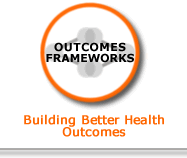 |
H. Evidence for a person-centred approach and consistent support from service providers (Recovery Model) |
Summary There is review-level evidence and policy directives for a recovery- oriented system of care to provide effective personalised, sustained treatment support and address multiple and complex needs associated with problem drug use. Rationale Best et al. (2010), a Scottish-Government-commissioned review reported that a range of different interventions are required to effectively treat drug dependence, providing evidence of a need for individualised person-centred care as described by White’s Recovery Management Model (2008). The review concludes that structured treatment results in improvement in substance use, reduced offending, improved social functioning, physical and psychological health and reduced risk taking. These beneficial treatment effects are demonstrated both immediately and in the long term. Findings from multiple longitudinal outcome studies at two to five years follow-up suggest a minimum three month treatment duration is critical to contributing to successful outcomes. [1] Evidence of the effectiveness of treatment for drug dependence There is evidence from seminal large-scale treatment outcome studies in the US (DATOS), the UK (NTORS and DTORS) and Scotland only (DORIS) [studies of what works in practice] that good-quality therapeutic relationships, retention in treatment and self-help/mutual aid groups are predictors of positive recovery-related outcomes. For a summary of individual study findings see Best et al. (2010) [1] or DSDC (2013) [2].
Scottish policy and practice note Quality Principles: Standard Expectations of Care and Support in Alcohol and The underlying philosophy of a ROSC is that treatment and aftercare are integrated, and priority is given within the system to sustaining individuals in their recovery journey. The distinguishing features of a ROSC include being person-centred, inclusive of family and significant others, as well as providing individualised and comprehensive services across the lifespan with systems anchored in the community. At its core it has strength-based assessments and interventions that are responsive to personal belief systems, a commitment to peer recovery support services, is inclusive of the voices and experiences of people and their families in recovery and provides integrated services. It also provides for system-wide education and training, ongoing monitoring and outreach, is outcomes-driven and evidence-based. In their commissioned Independent expert review of the place of Opioid Replacement Therapy (ORT) for the Chief Medical Officer for Scotland [2], the Drug Strategy Delivery Commission’s (DSDC) final report makes 12 recommendations, including the following in relation to progressing recovery in Scotland: Recovery-orientated systems of care (ROSCs) are well described in many guidance documents. All local systems should immediately publish prioritised SMART plans to ensure they can demonstrate a process towards delivery of ROSCs. Elements expected in such plans include:
|
References:
|

